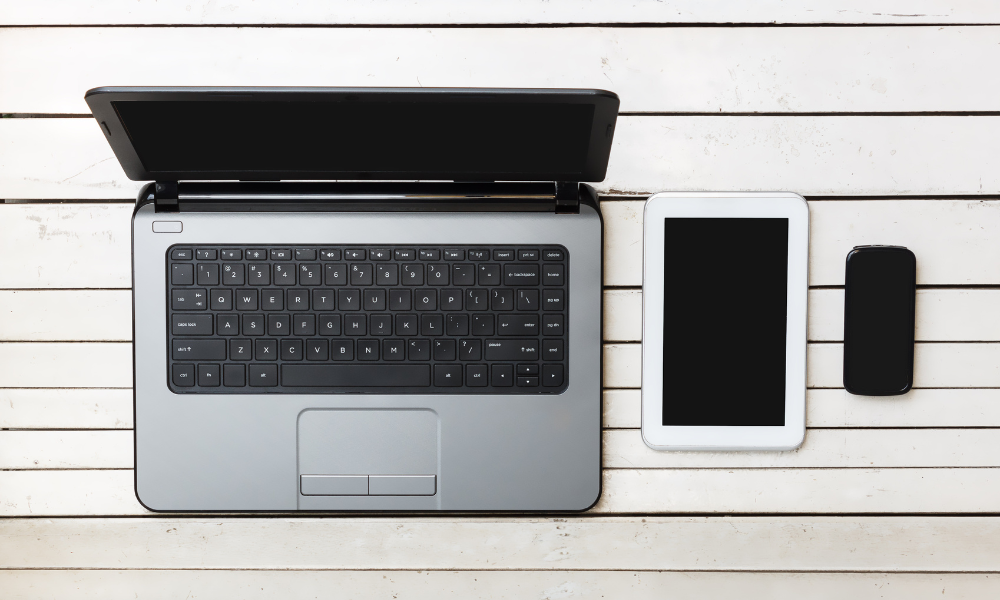Device management is one of the most vital aspects of cybersecurity for businesses of every size and in every industry.
If you want to protect your business and grow in future, it’s critical that you institute proper device management. Especially in a world where remote and hybrid working are increasingly common.
But why else is device management important? What sort of processes does it actually include?
Here’s a quick rundown on the whys and hows of managing the devices your employees use:
What is meant by device management?
Device management is the way your business handles the administration, security, monitoring, and maintenance of devices like desktops, laptops, mobile phones, and so on that your employees use for work purposes.
In some businesses, it goes further. To include machinery connected to the IoT (Internet of Things) space, for example.
The actual day-to-day processes of device management can include:
- Device configuration – installing required software and setting up a device so everything works as intended.
- Security – systematically ensuring all devices have the right firewalls and other security measures in place.
- Updates and maintenance – making sure all devices are up-to-date, compliant, and cybersecure.
Why do you need mobile device management?
1) 24/7 monitoring and remote troubleshooting
The best thing about proper device management using specialist software is that your Managed Service Provider (MSP) or in-house IT department can monitor all of the devices used by your business.
Because they are able to administer devices remotely, the security of your network is massively improved:
- Problematic users can be temporarily deactivated and issues dealt with often before you’re even aware of the problem.
- Protections and rules are enforced network-wide, meaning your business stays as safe and secure as possible.
- This is particularly useful over times like the Christmas holidays, when your MSP can still get device alerts when mistakes are made by well-meaning employees.
2) Minimised IT risk
Bring Your Own Device days and generally lax control over which devices are permitted for work purposes are responsible for huge numbers of data breaches and other cybersecurity problems every year.
Of course, you can have your IT department review every device manually and individually. Or you could simply give a blanket no when your team ask permission to use other devices.
Neither of these approaches is really sustainable though. Proper device management provides a solution that is systematic and which tracks individual devices and their security status at all times.
3) Meet compliance standards
It’s always worth bearing in mind that you leave yourself open to financial penalties (we’re talking hefty fines) if your business doesn’t take certain required steps to protect the customer and partner data you hold.
It’s much easier for your MSP to show that you’ve done this if all the devices that can be used to access that data are managed and monitored at all times.
If you’re not working with an MSP, make sure you have processes in place to confirm that every device your team uses – including those used on Bring Your Own Device days – is set up to comply with all the important regulatory standards.
4) Reduce admin, boost productivity
Without device management software, all of the tasks required to maintain a network of devices – and this can be distributed widely thanks to site visits and other business activities as well as the rise of remote working – have to be done manually.
With the right software and approach, many necessary tasks become largely automated. Your devices are constantly optimised and can be controlled from a distance in the event of a problem.
There’s usually one single central dashboard where your MSP can manage everything. It’s quicker, cleaner, and safer – all things which will save your business money and generate productivity.
5) Enable growth
How much productivity would you guess the average organisation loses each year to devices that don’t simply “work” when they’re expected to?
For new starters alone, delays between their start date and the date their company device is ready cost businesses huge numbers of wasted hours every year.
With the right device management, a new employee has access to their emails, calendars, and all necessary apps and programs from day one.
This is the kind of capability that becomes increasingly important as your business continues to grow.
Device management – the time to act is now
Like other businesses, we understand the challenges of device management. We have some of our team on hybrid working and others who need to carry out site visits. But, as a Managed Service Provider ourselves, we also know how important it is to get this right.
The time to act is now. Understand more about what device management is and get it in place before you get phone calls over the holidays about lost laptops, missing firewalls, and data breaches.
Want to talk through device management with an expert with no commitment?
Over 900 businesses in and around Bristol have trusted Dial A Geek with their cybersecurity.
Chat about yours with Chief Geek Gildas Jones today. There’s no fee or obligation.

